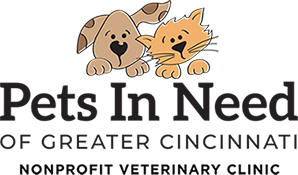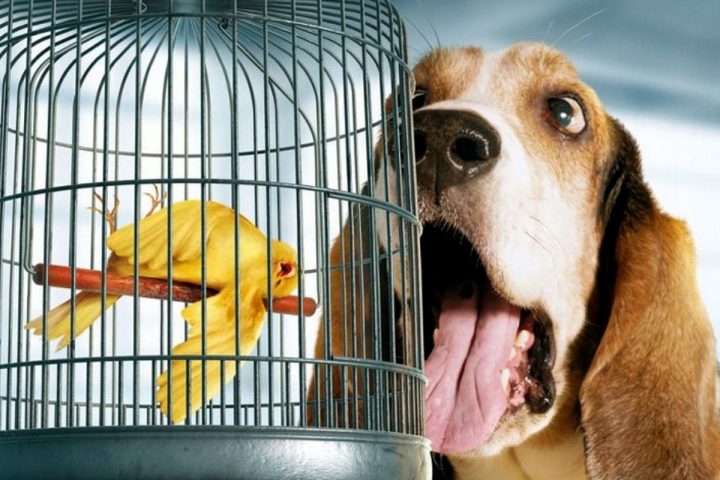The Importance of Pet Oral Health
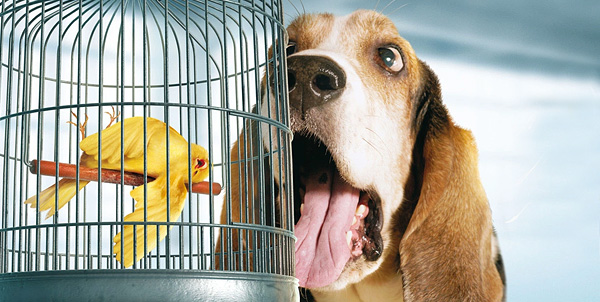
Consequences of poor pet dental health:
Healthy oral hygiene is important for our pet for multiple reasons. Clean teeth are not only cosmetically pleasing; they also promote good smelling breath and better long-term health.
If poor oral health causes an infection in our pet’s teeth or gums, it can spread to their kidneys. This is especially true in cats. Older cats often suffer from kidney failure, which can be caused by an oral infection spreading to kidneys. Valvular heart disease can also be caused by poor dental hygiene. Bacteria from a pet’s mouth can travel to its heart valves, causing them to change shape and become leaky.
When does your pet need a teeth cleaning?
During your pet’s annual check-up your vet should inspect their mouth and recommend a cleaning when needed. All pets will eventually need their teeth cleaned, but the timing is different based on the individual. Signs your pet may need a teeth cleaning or oral exam include consistent bad breath, visible tartar build up or tooth discoloration, broken or loose teeth, tenderness around the mouth and/or teeth, increased drooling or dropping food, bleeding from the mouth, and loss of appetite. Also, if there’s red inflammation where the teeth meet the gum, there’s likely an infection that should be evaluated and cleaned.
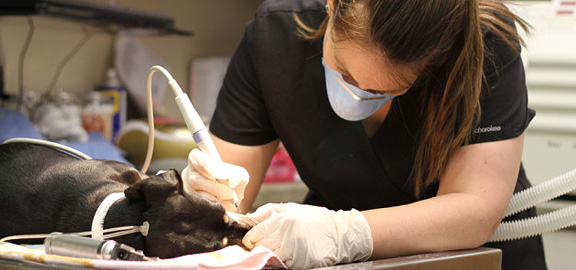
Promote healthy oral hygiene between cleanings:
Every pet will eventually need his or her teeth cleaned, there’s simply no way to avoid it. However, to promote good oral health between cleanings, try a few of these tips:
- Dental chews sold for dogs and cats do actually work in helping to eliminate some bacteria and plaque build-up
- Pets that eat hard food usually need their teeth cleaned slightly less often, because the hard food helps to remove tarter and plaque build-up.
- Brushing your pets teeth with pet approved toothpaste can also help, but only if your pet enjoys it. If it’s a struggle to get your pet to cooperate, it’s not worth the fight, because their teeth will eventually need cleaned no matter what. The worst thing a pet owner can do it engage in unnecessary, repeated negative interaction with their pets. This can cause pets to avoid their owners altogether, in fear of another negative interaction, like getting their teeth brushed.
- Pet owners are usually better off just avoiding table scraps all together, but they should definitely avoid sugar. Not only can it be upsetting to a pet’s stomach, it can also contribute to poor oral health.
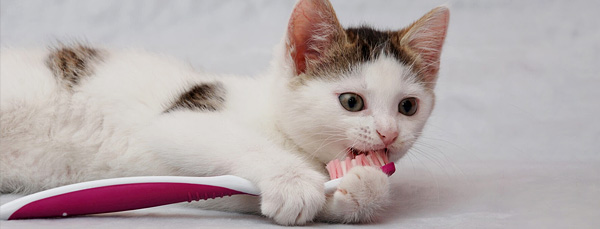
Benefits outweigh risks:
Pet owners often say they don’t get their pet’s teeth cleaned because of the risks associated with anesthesia. It’s true that a pet must be put under general anesthesia to have their teeth cleaned. However, anesthesia is so sophisticated today that it’s very safe and there’s very little risk to a healthy pet. All veterinarians are taught to weigh the benefits to the risk when caring for a pet, and the long-term health benefits of healthy oral hygiene far outweigh the very small risk associated with anesthesia.
